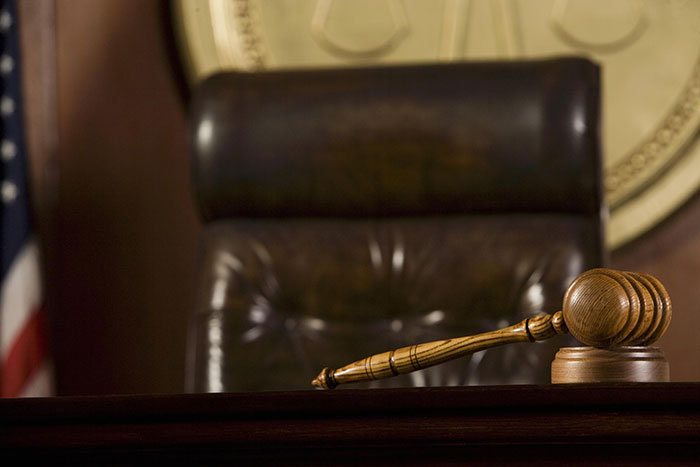
New federal regulations hold that college athletes who have been accused of sexual misconduct can continue to play while inquiries into their cases are made.
That means educational institutions and coaches cannot suspend athletes based solely on a sexual misconduct complaint, claim or allegation. Instead, college officials must fully investigate the claim and then rule against the athlete before a suspension or other punishment can occur.
The new regulation is scheduled to go into effect on August 1, 2024.
According to ESPN, the due process provision is among several outlined in the U.S. Department of Education’s final version of regulations governing how K-12 schools, colleges and universities respond to complaints of sexual harassment and violence under the law known as Title IX.
Title IX refers to federal regulations that ban discrimination based on race, color, religion, sex, national origin, sexual orientation and gender identity.
The due process provision was originally adopted in 2020 under the Trump administration by former Education Secretary Betsy DeVos.
Though the provision has been championed by male athletes facing sexual misconduct accusations and by organizations advocating for stronger due process protections, it’s also been criticized by survivors and their supporters, who claim it can lead to intimidating those who report violations and put other students at risk.
When asked about the due process provision, a senior Biden administration official said that to remove a student from an athletic team, or any school activity, before a finding of responsibility has been made is an unfair burden.
What are the differences between Title IX and court proceedings?
Learn the difference between a Title IX investigation and a criminal investigation, including possible punishments.
Athletes have fought Title IX unfairness
Indeed, punishments and suspensions made before a student receives their due process in an investigation have been an issue in several recent court cases involving athletes.
University of Illinois basketball player Terrence Shannon Jr. sued the school early this year by claiming that officials had made a rushed and unfair decision to suspend him after he was arrested on December 28, 2023, in Lawrence, Kansas, and charged with rape.
Shannon, who previously played basketball for Texas Tech University, was then suspended indefinitely by Illinois. He missed 6 games but was then allowed to return to the team on January 21, 2024, thanks to a temporary restraining order from a federal judge.
After that, Shannon played for the remainder of the season, after which he’d used up his graduate season eligibility and declared for the NBA draft.
Shannon’s lawyers cited the provision in DeVos’s regulations that states a school “may not suspend or remove the accused from an education program or activity pending a determination of responsibility at the conclusion of a grievance process,” unless school officials determine that the athlete poses an immediate threat to health or safety, which they said was not the case.
Illinois later closed its investigation into the alleged assault while citing insufficient evidence, and Shannon dropped his lawsuit. But his criminal case remains ongoing.
According to USA Today, a Kansas judge ruled recently in a preliminary hearing that Shannon will stand trial on first-degree felony rape and felony sexual aggravated battery charges on June 10, 2024.
Title IX, criminal investigations may overlap
As Shannon’s case demonstrates, a student-athlete can face a Title IX probe and a criminal investigation at the same time. With that in mind, the new Department of Education regulations address what Title IX administrators should do when they’re attempting to investigate a complaint of a sexual assault at the same time as law enforcement makes its own investigation.
A senior Biden administration official said federal regulations emphasize the need for a “prompt” Title IX process even while a criminal justice procedure is pending.
The revised rules undo some of the DeVos regulations, including changing a controversial rule that had directed schools to conduct live hearings with cross-examination. The new rules allow colleges and universities to have investigators question parties individually or during a live hearing in which each party can submit questions.
It also instructs schools to return to the “preponderance of evidence” standard—also known as the 51% threshold—to determine whether evidence supports a finding of misconduct. The previous rule allowed universities to use the higher “clear and convincing” standard of proof without condition, which the Biden administration says the school can use only if it’s also applied in other proceedings.
How to respond to a Title IX sex assault complaint in Texas
Learn what to do and what to expect when you’re facing a Title IX complaint.
Texas A&M Title IX official weighs in
Richard Olshak, the director of Title IX and student conduct compliance at Texas A&M University and a member of the advisory board of the national Association of Title IX Administrators, wrote in an email after reviewing the new regulations that Title IX practitioners and athletic departments face positive and negative implications of the new rule.
“From the lens of a Title IX Coordinator, we don’t want athletics taking actions that impugn or undermine the perception of our process and can be perceived as punishing or retaliatory,” Olshak wrote. “This issue now becomes more complicated with the rise of NIL and a property interest that seems to be in some conflict with the long-held idea that participation in athletics is a privilege as opposed to a right.”
NIL refers to “name, image and likeness” and the ability of college athletes to profit from their fame by promoting, partnering with or representing brands. In effect, it allows college athletes to be paid.
This occurred thanks to a unanimous 2021 Supreme Court decision in the case of National Collegiate Athletic Association v. Alston. The court ruled that the NCAA had violated antitrust laws by “restricting the education-related benefits that student athletes may receive.”
NIL now enables NCAA student-athletes to receive compensation for their name, image or likeness, which previously had been restricted by NCAA rules. They now can sign with agents who arrange for them to be paid for appearances, endorsements and other things.
Get a skilled Houston-area Title IX lawyer
If you or a family member in the Houston area face a Title IX investigation and possible punishments after a claim of sexual misconduct, you must take that seriously by engaging an experienced and skilled Title IX defense lawyer or attorney.
Title IX punishments can be severe. Students can be expelled and can even be ordered to pay restitution to a university or an individual for any losses caused by the accused student when they’re found in violation.
Houston’s award-winning and peer-honored Neal Davis Law Firm can fight for the legal rights of accused student athletes. That defense can come during a college’s Title IX proceedings or when a student faces a criminal charge by law enforcement authorities.
Contact us today to arrange a confidential consultation for your Title IX sexual misconduct case.



